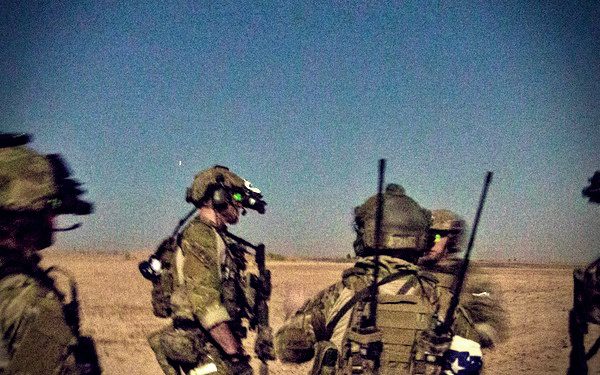Article 32, U.C.M.J.
Falsely Accused of Sexual Assault? What to Do If It Happens to You
width=”560″ height=”315″ frameborder=”0″ allowfullscreen=”allowfullscreen”>
1. INTRODUCTION: An Article 32 Investigation is a prerequisite to trial by general court-martial and if used effectively can be one of the most important tools a defense attorney has in his to defend the client. However, to utilize the Article 32 Investigation to your client’s advantage the defense counsel must know the rules and prepare in advance.
2. RULES FOR ARTICLE 32 INVESTIGATIONS. The rules for Article 32 Investigations flow from three major sources: (1) Rules for Court Martial (R.C.M.) 405, (2) case law and (3) DA PAM 27-17. It is a sure to have a notebook containing these legal sources along with other material pertaining to Article 32 Investigations. A sample Article 32 notebook accompanies this information paper. The Military Rules of Evidence (M.R.E.) generally do not apply to Article 32 Investigations. However, M.R.E. 301, M.R.E. 302, M.R.E. 303, M.R.E. 305, M.R.E. 412 and the rules of evidence regarding privileges do apply.
2. PURPOSE OF ARTICLE 32 INVESTIGATION: The purposes of an Article 32 Investigation are specifically set out in R.C.M. 405(a) discussion and R.C.M. 405(e). Generally there are four recognized purposes: (1) to inquire into the truth of the matter alleged in the charges, (2) to consider the form of the charges, (3) to make a recommendation as to disposition of the charges and (4) discovery (See 405a discussion and United States v. Roberts, 10 M.J. 308 (C.M.A. 1981). Defense counsel must ensure that the Article 32 Officer understands the importance of discovery. Discovery will always be an important purpose for defense counsel, even if there are other purposes. Other purposes include allowing the client to see the government’s compelling case (client control); showing weaknesses in the governments case to improve the negotiating posture, or winning the case.
3. BURDEN OF PROOF: The Investigating officer must determine whether “reasonable grounds exists to believe the accused committed the offense.” R.C.M. 405(j)(2)(H). Reasonable grounds may arguably be translated as “probable cause” or “having more evidence for than against.”The recommendations of the Article 32 Officer are advisory only. Accordingly, the defense counsel must make a tactical decision about what evidence present to reveal at the Article 32 hearing.
4. INVESTIGATING OFFICER (IO): The IO must be appointed by the convening authority and should be a field grade officer or an officer with legal training (judge advocate). R.C.M. 405(d)(1). The IO must be impartial and may be disqualified anytime his/her impartiality might be reasonably questioned.
5. LEGAL ADVICE: Any advice received must be from a neutral source and must not be given ex parte. United States v. Payne, 3 M.J. 354 (1977). As a matter of practice, most SJA offices assign an administrative law attorney to advise the IO. The defense counsel should, as a matter of course, request to be present during any session with the legal advisor. The defense counsel should also request the IO memorialize in writing any discussion he/she has had with the legal advisor, convening authority or anyone else associated with the case even if it concerns only procedural issues.
6. DEFENSE COUNSEL: The accused has the right to defense counsel at the Article 32 hearing. This right includes the right to request individual military counsel or civilian counsel at no expense to the government. R.C.M. 405(d)(2). The accused may request a delay to obtain counsel of choice. United States v. Maness, 48 C.M.R. 512 (C.M.A. 1974), but see United States v. Pruner, 33 M.J. 272 (C.M.A. 1991) (Investigation will not be unduly delayed to acquire civilian counsel). Defense counsel may request a delay to prepare for the Article 32 hearing United States v. Miro, 22 M.J. 509 (A.F.C.M.R. 1986) (an unprepared counsel is tantamount to no counsel at all). A sample delay request is attached. (Encl)
7. GOVERNMENT REPRESENTATIVE. The government representative must be appointed by the convening authority. Generally, the government representative is the trial counsel. Defense counsel may want to object if the convening authority has not properly appointed the government representative.
8. WITNESS PRODUCTION: Defense counsel should request the personal appearance of all relevant witnesses including witnesses requested by the government. A sample witness request accompanies this information paper (Encl). Any witness whose testimony would be relevant and not cumulative shall be produced if the witness is reasonably available. R.C.M. 405(g). The rules for determining reasonable availability are set out in R.C.M. 405(g)(1)(A). Rules vary depending on the status of witness as military, DOD employee or civilian. If the IO determines that a witness is unavailable, defense counsel must ensure that the IO states the basis for this determination on the record. To preserve the issue, defense counsel should object to the IO considering any alternates to testimony and defense counsel should consider requesting an oral deposition under R.C.M. 702. Also, defense counsel should consider the use of telephone or video teleconference testimony.

